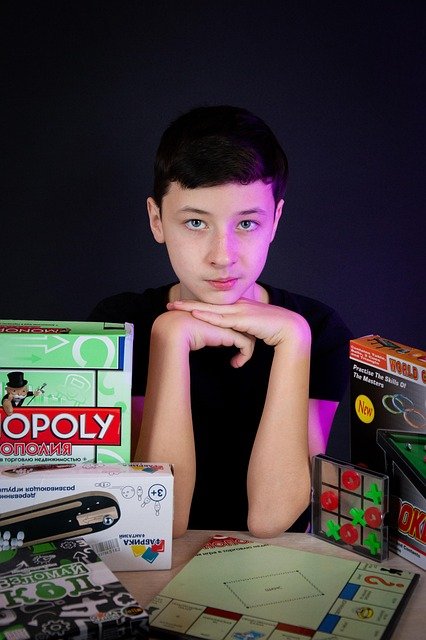Silent Spaces: The Cultural Shift Toward Voluntary Quietude
In a world defined by constant chatter—digital, social, and environmental—a subtle movement is emerging. Voluntary quietude, or the conscious pursuit of silence, is redefining how individuals relate to themselves and society. Why are people seeking out silent spaces, and what does this say about our collective psyche? Read below to discover how quiet is quietly changing us.
A Brief History of Silence and Social Value
Historically, silence has played a complex role in human societies. In ancient civilizations, periods of quiet were often associated with spiritual rituals, wisdom, and introspection. Monastic traditions across cultures, from Buddhist monasteries in Asia to Christian abbeys in Europe, have long emphasized vows of silence as a path to enlightenment and self-mastery. Anthropological studies reveal that indigenous communities often used silence as a form of respect and communication, conveying meaning without words.
By the 20th century, industrialization and urbanization began to erode the social value of silence. The advent of mass media, telephone networks, and later, the internet, turned noise into a constant companion. Sociologists like Georg Simmel and Erving Goffman wrote about the shifting boundaries between public and private spaces, noting how urban living fostered both overstimulation and an increasing need for personal retreat. Yet, even as noise became synonymous with progress, the longing for quietude persisted, resurfacing in cultural pockets such as the countercultural movements of the 1960s and the mindfulness surge of the early 2000s.
The Modern Pursuit of Quiet: From Niche to Mainstream
Today, voluntary quietude is emerging as a mainstream social trend, moving beyond monastic retreats and wellness circles. Research from the Pew Research Center and the American Psychological Association highlights a growing desire among urbanites and digital natives to carve out silent spaces in their daily routines. Soundproof pods in open-plan offices, silent reading parties in bustling cities, and no-phone zones in cafes all point to a renewed cultural emphasis on quiet.
This shift is not merely anecdotal. Market analysts report significant growth in industries catering to silent experiences—from meditation apps that offer guided silence to travel destinations emphasizing acoustic isolation. Tech companies are even developing noise-canceling devices that allow users to create personal bubbles of quiet in public spaces. These developments signal a broader recognition of the psychological and social benefits of silence in an age dominated by information overload.
Sociological Drivers: Why Are We Seeking Silence?
Several sociological factors underpin the rise of voluntary quietude. The first is the relentless pace of modern life. Studies by the World Health Organization have linked chronic noise exposure to increased stress, anxiety, and even cardiovascular risk. In response, people are intentionally seeking moments of silence as a form of self-care and resilience.
Second, the digital revolution has blurred boundaries between work and personal life, making uninterrupted downtime increasingly scarce. Sociologist Sherry Turkle’s research on digital communication suggests that constant connectivity can erode the quality of human relationships and self-reflection, fueling a yearning for undisturbed solitude.
Third, the cultural valorization of productivity and visibility—amplified by social media—has paradoxically led to a counter-movement celebrating stillness and withdrawal. Silent book clubs, meditation communities, and even silent discos (where participants dance together wearing headphones) reflect a collective experiment in finding meaning outside of constant expression.
Quietude and Identity: A New Social Statement
Choosing silence in a noisy world is becoming a form of social identity and subtle protest. For some, embracing quietude signals a rejection of the performative demands of modern life. For others, it is an act of self-preservation or a route to deeper connection with themselves and others. According to a 2023 survey by the National Opinion Research Center, more than 30% of millennials and Gen Z respondents reported regularly seeking out silent environments as a way to reset and recharge.
This trend is also visible in the arts and cultural production. Museums are curating silent exhibitions, while public parks are designating quiet zones to foster contemplative experiences. Even in activism, silent marches and demonstrations have gained traction as powerful tools for communication and solidarity, leveraging the impact of collective quiet to draw attention to social causes.
The Societal Implications of a Quieter Future
The shift toward voluntary quietude has profound implications for how societies organize space, time, and interaction. Urban planners are reconsidering noise pollution standards, and employers are rethinking the architecture of workspaces to accommodate silent zones. Schools are experimenting with quiet rooms and mindfulness breaks, recognizing the benefits of silence for cognitive and emotional development.
Moreover, the normalization of quietude challenges prevailing assumptions about the need for constant activity and communication. It opens up possibilities for more intentional social engagement, deeper listening, and creative reflection. As research by the University of Helsinki suggests, periods of silence can enhance problem-solving skills, empathy, and overall well-being.
Yet, the trend also raises questions about accessibility and privilege. Not everyone has the resources to escape to a silent retreat or build a noise-proof sanctuary. As societies embrace quietude, there is a growing conversation about how to democratize access to silent spaces, ensuring that the benefits of quiet are not reserved for the privileged few.
Quiet as a Form of Social Innovation
Voluntary quietude is more than a personal preference; it is a collective adaptation to the complexities of contemporary life. By reclaiming silence, individuals and communities are challenging cultural norms, fostering resilience, and redefining what it means to connect in a hyper-connected world. As this movement grows, it invites us to reconsider the role of quiet—not as an absence, but as a vital presence shaping the future of people and society.





